50 years ago, in March 1971, Queen began writing the story of one of the greatest rock bands ever.
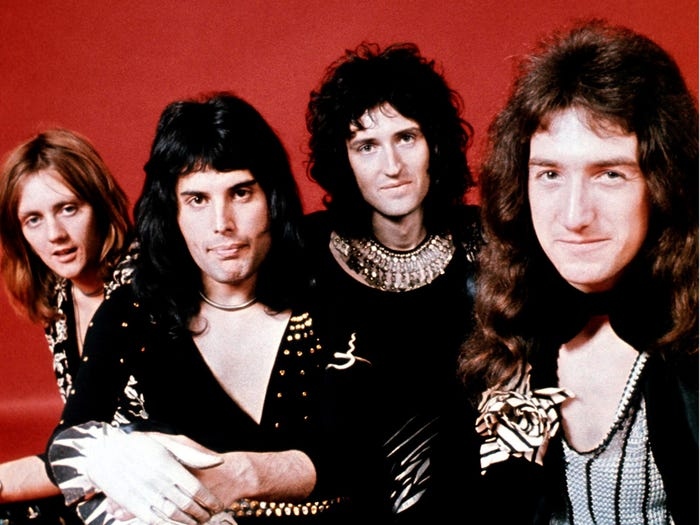
Before forming a four-piece, Brian May and Roger Taylor played music together in the band Smile. After adding Freddie Mercury, the group decided on the legendary name “Queen”. In March 1971, bassist John Deacon officially joined, marking the birth of one of the greatest rock bands in history.
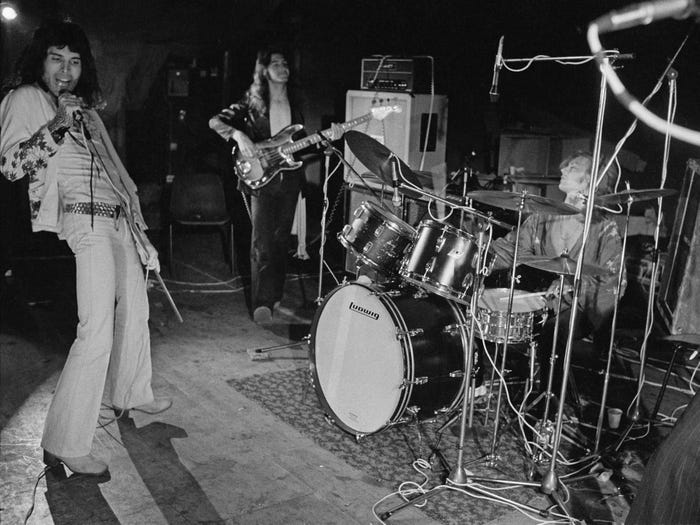
In 1973, the band signed their first recording contract with EMI. Queen then released their debut album, also titled “Queen”, which featured the single “Keep Yourself Alive” – a song that later appeared on Rolling Stone magazine’s list of the “100 Greatest Guitar Songs of All Time” in 2008.
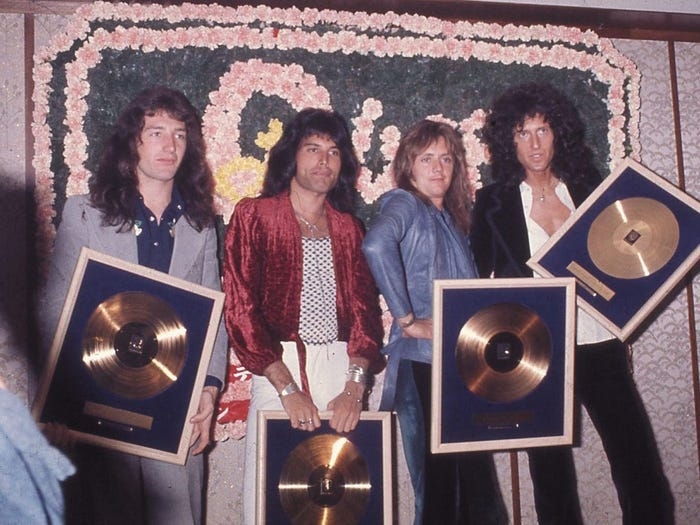
In 1974, the group released their second album, Queen II, which included hits such as “Seven Seas of Rhye”, “Ogre Battle” and “The Fairy-Feller’s Master Stroke”. That same year, their third album, Sheer Heart Attack, was released, which featured hits such as “Brighton Rock”, “Stone Cold Crazy” and “Killer Queen”. Both albums later went on to achieve Gold Disc status in the US (sales of 500,000 copies).
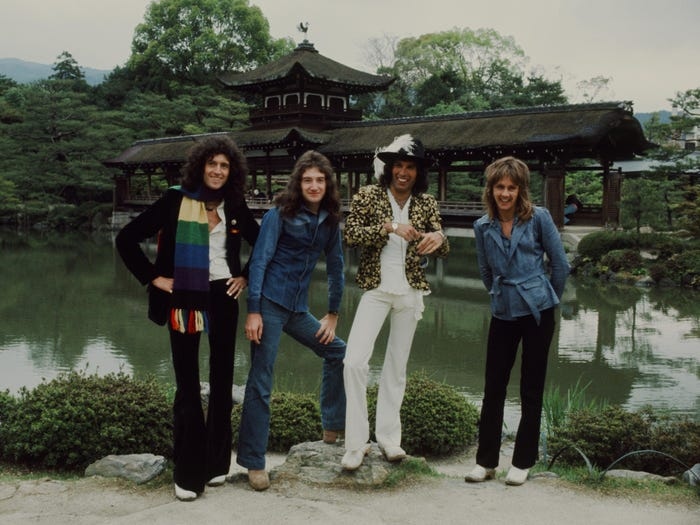
In 1975, Queen performed for the first time in Japan – where the group had an extremely large fan base.
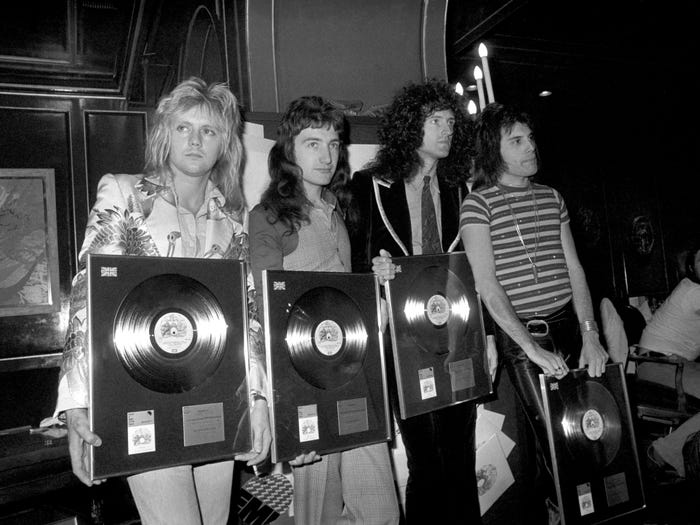
In 1976, the group’s fourth album, “A Night At The Opera”, was the most expensive album ever produced at that time. The most famous song on this album was “Bohemian Rhapsody”. The album quickly achieved great success and was certified 3 times Platinum in the US.
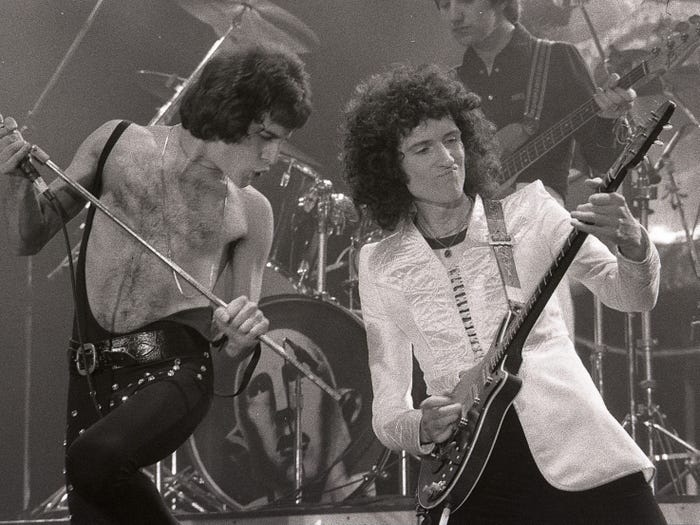
In 1977 and 1978, Queen embarked on the “News of the World” tour of North America and Europe, performing songs that would become synonymous with the group, including “We Will Rock You” and “We Are The Champions”.
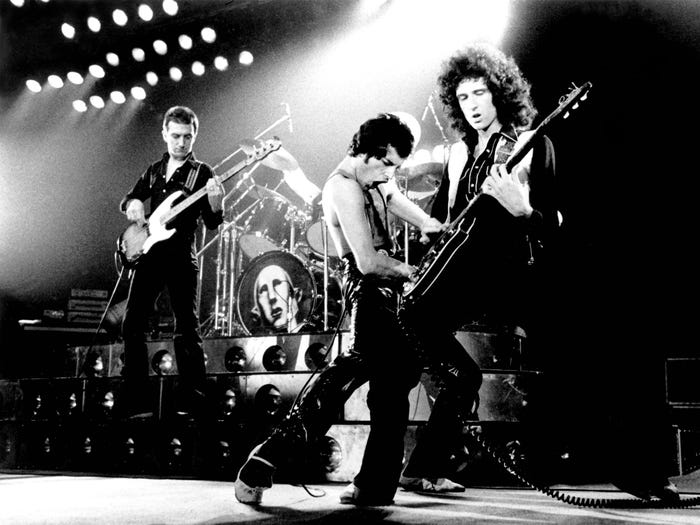
In late 1979, the band performed “Crazy Little Thing Called Love” throughout Europe. The song topped the Billboard Hot 100 chart in February 1980, a first for Queen.
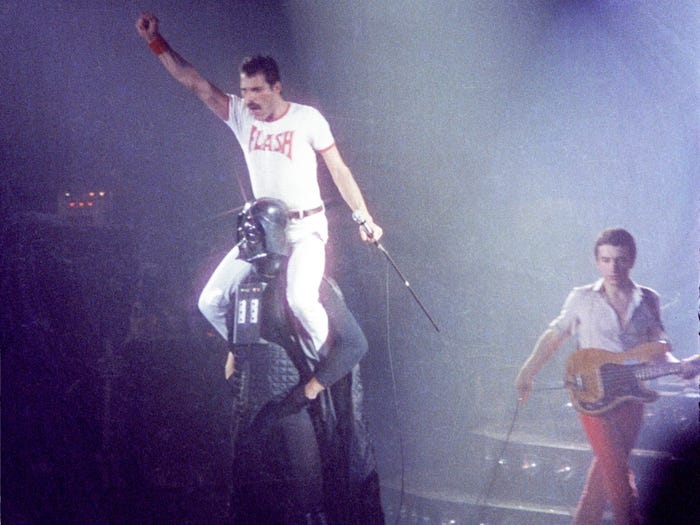
In 1980, Queen released their ninth album “Flash Gordon”. This photo was taken at a concert, Freddie Mercury wearing a white shirt with the word “Flash” on it, sitting on the shoulders of the Star Wars character Darth Vader.
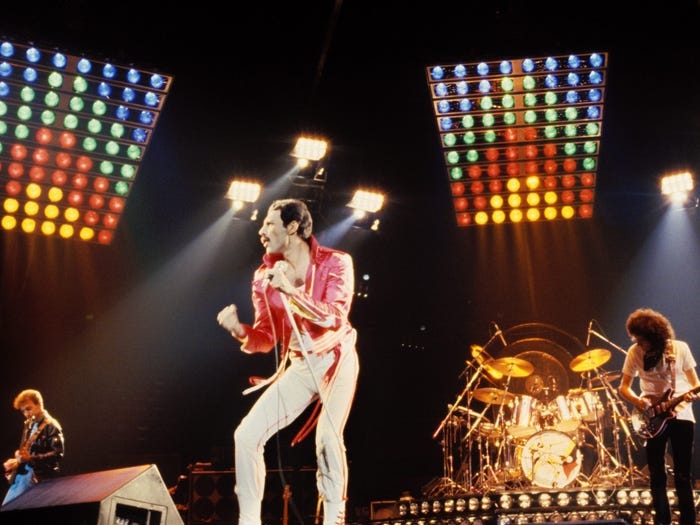
In 1982, the group’s 10th album “Hot Space” achieved Gold Disc in the UK and the US. More importantly, this album marked a change in Queen’s music, with a greater mix of other genres such as pop and funk instead of pure rock as before.
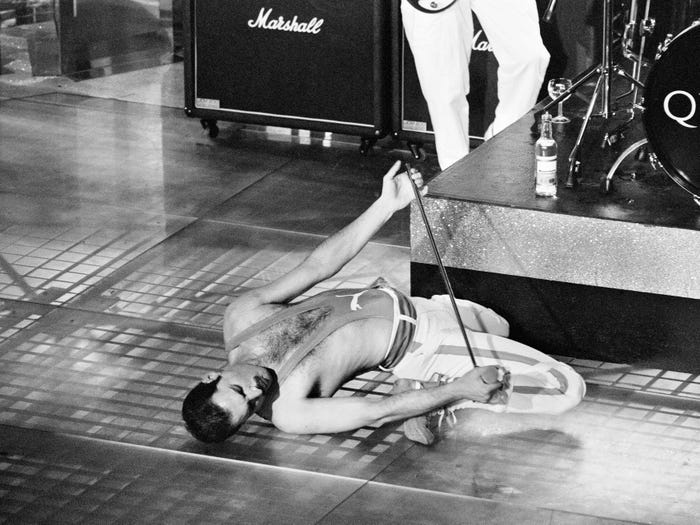
1984: Freddie Mercury shows more and more flexibility on stage. The singer’s passion for music can be seen and felt through his unique performances. Also in this year, Queen releases their 11th studio album “The Works”.
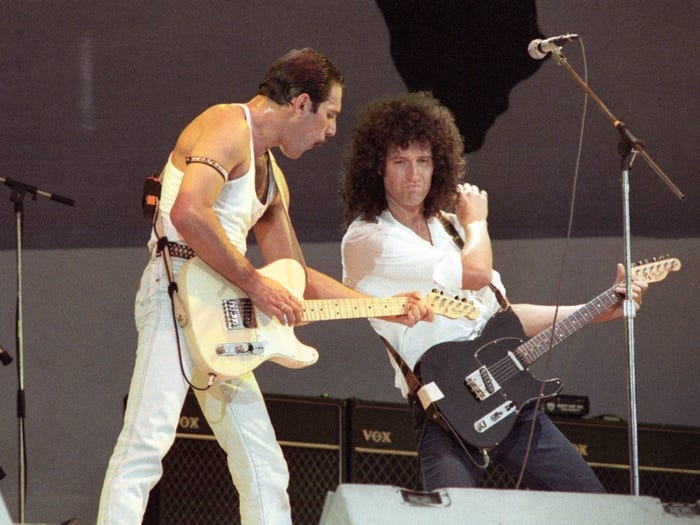
In 1985, Queen performed at Live Aid – a charity event to raise funds for famine relief in Ethiopia. A 2005 poll named Queen’s 20-minute performance at Live Aid as the greatest performance in rock history.
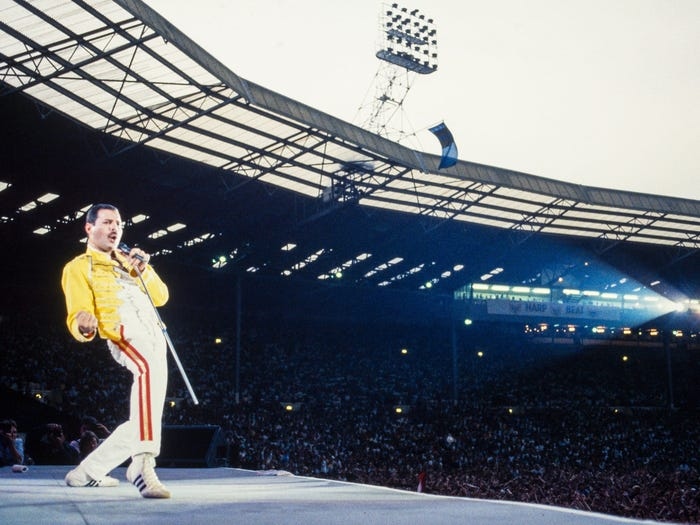
In 1986, no one expected the “Magic tour” to be the last tour featuring Freddie Mercury and the band. The tour included 26 shows across Europe and was a resounding success.
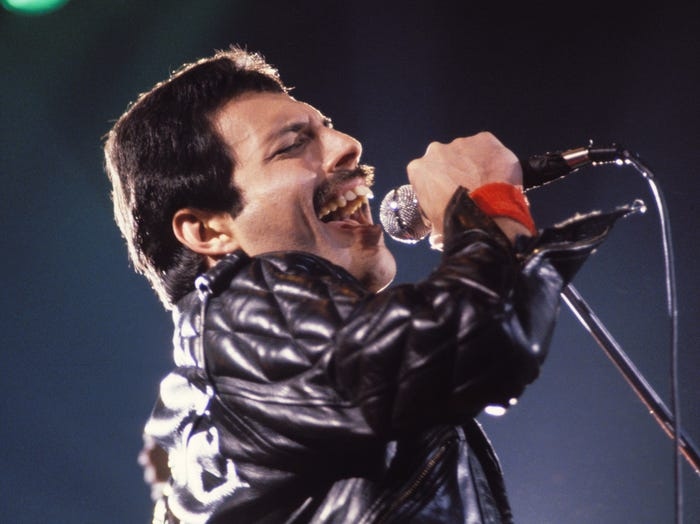
In 1991, Freddie Mercury died on November 24 due to illness.
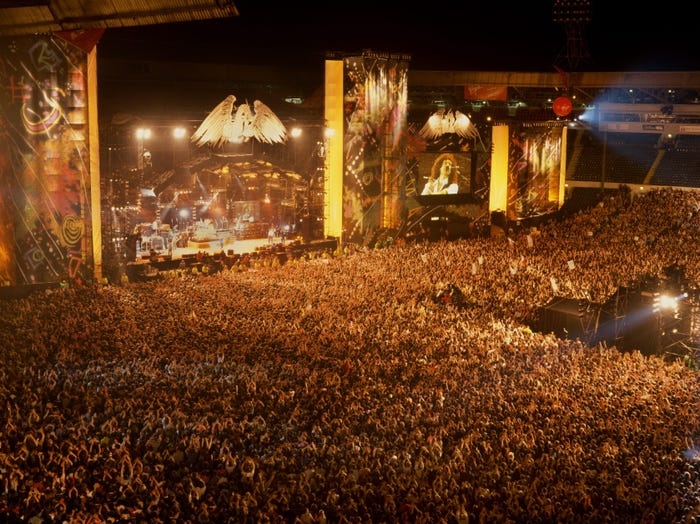
In 1992, Queen held a tribute concert in memory of Freddie Mercury, with the participation of David Bowie, Elton John, Roger Daltrey… and about 72,000 spectators. This was also the last performance of bassist John Deacon with Queen. He completely retired from the music industry in 1997.
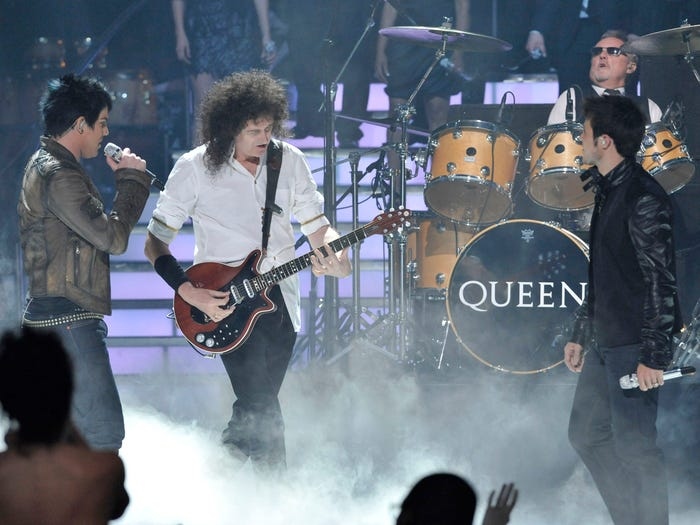
In 2005, Queen went on their first tour since 1986. Brian May and Roger Taylor joined Paul Rodgers on a tour across Europe.
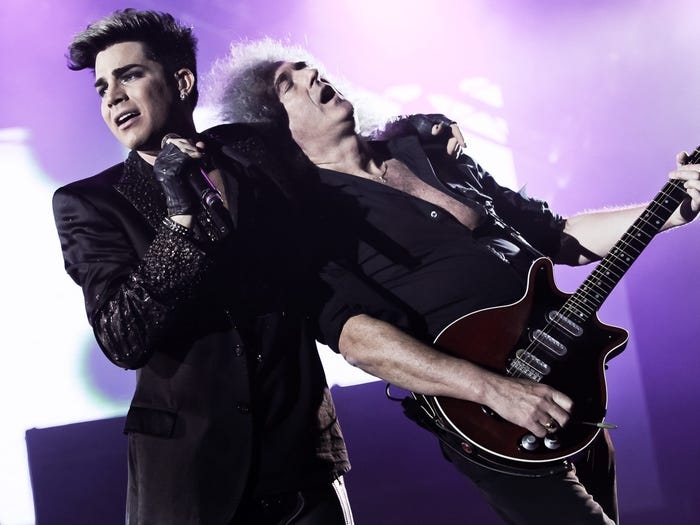
2009: Queen collaborated with Adam Lambert for the first time. Queen appeared on the finale of “American Idol” to perform “We Are The Champions” with Adam Lambert. Although the eventual winner was Kris Allen, Adam Lambert’s performance with Queen left a strong impression and laid the groundwork for their official collaboration in 2012.
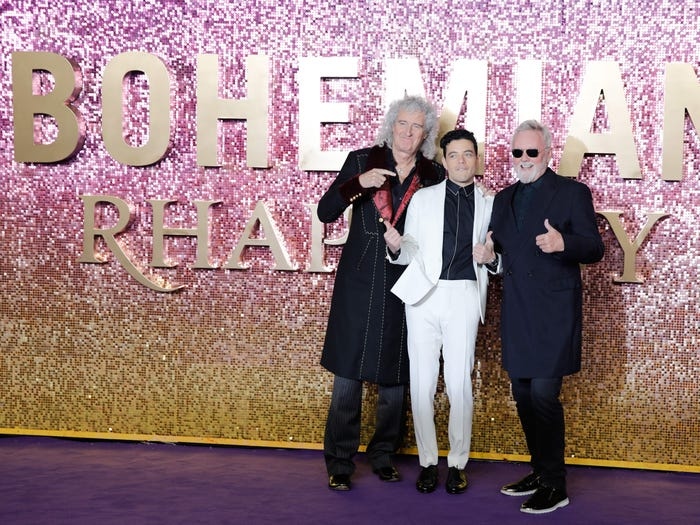
2018: The film “Bohemian Rhapsody” is released, telling the story of Freddie Mercury (played by Rami Malek) from the formation of Queen until his death. The film won the Golden Globe for Best Motion Picture – Drama. Actor Malek received many accolades for his role as Mercury, including the Academy Award for Best Actor.
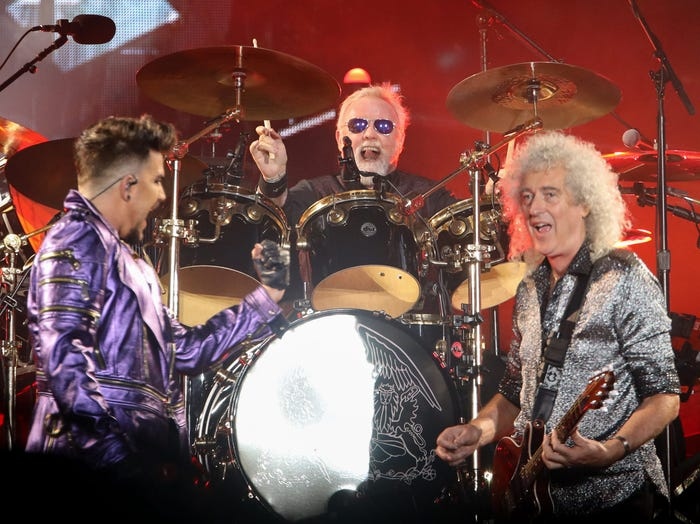
In 2020, Queen + Adam Lambert released the live album “Live Around the World”, including performances from 2014 to 2020. Their most recent performance was held in Sydney (Australia) at the end of February 2020, before the Covid-19 pandemic broke out./.





